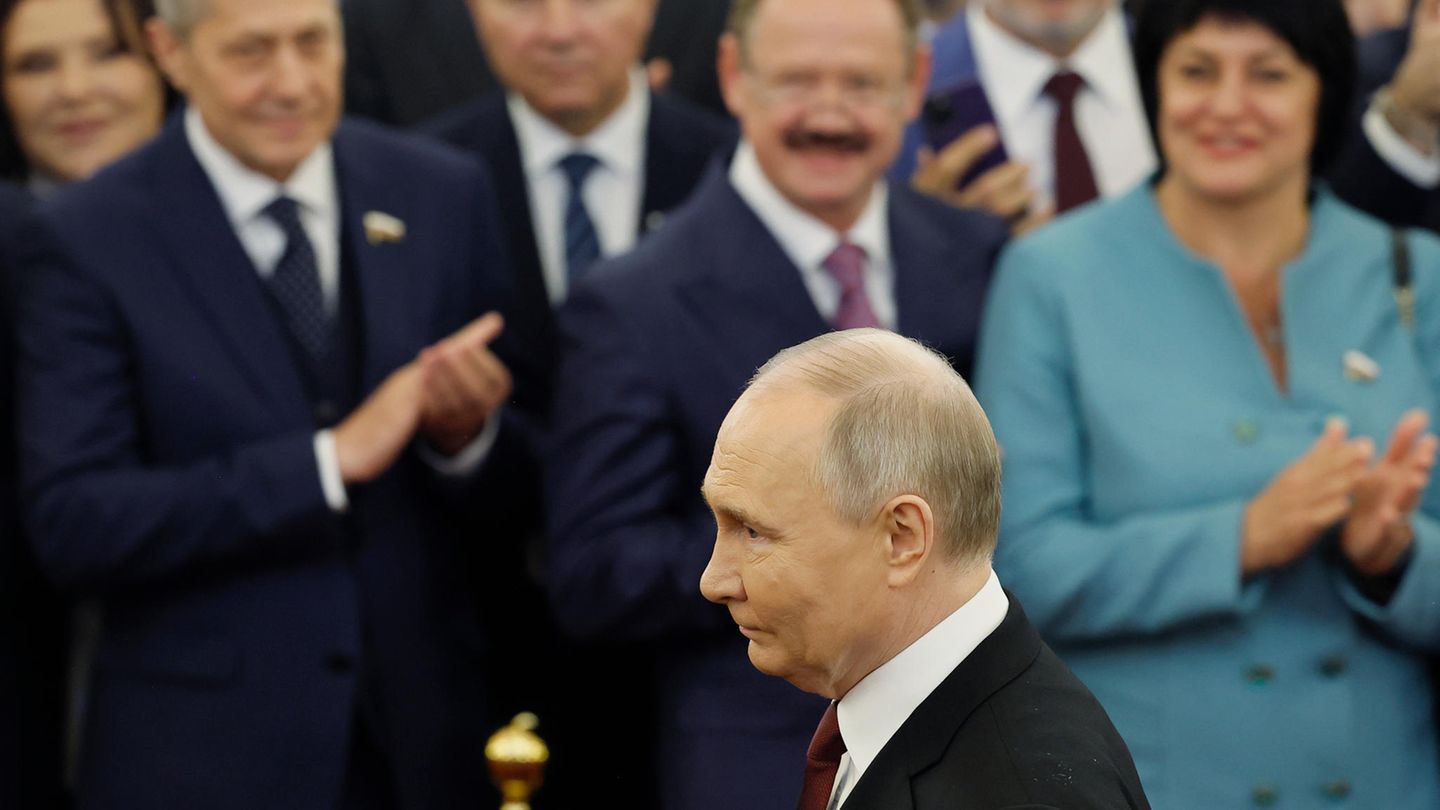Vladimir Putin is sworn in as Russian President for the fifth time – and almost at the same time announces nuclear exercises near Ukraine. The West reacted cautiously to the announcement. Is there now a threat of nuclear escalation?
Pomp at home, atomic bombs at the front. As Vladimir Putin takes office as Russian president for the fifth time, the Moscow Foreign Ministry announced a maneuver with “non-tactical nuclear weapons.” Missile units from the Southern Military District and naval forces would take part – in other words: Russia is practicing the use of nuclear bombs directly on the border with Ukraine – and declares Great Britain a “party to the conflict”.
Kremlin wants to “cool down hotheads in the West”
For example, “non-tactical” nuclear weapons can be used against enemy forces and other military targets. As a rule, they have a significantly lower explosive power than the strategic nuclear weapons developed specifically for deterrence. Ultimately, however, they remain bombs with considerable potential for destruction and contamination.
The Kremlin said the nuclear exercises were intended to cool down the “hotheads in the western capitals.” Specifically, the name of British Foreign Minister David Cameron was mentioned. He recently said that the Ukrainian army could also use British missiles to attack Russian territory. In response, the Moscow Foreign Ministry summoned the British ambassador and presented him with a note of protest.
Russia threatens Britain with armed force
He was warned that “a response to Ukrainian strikes with British weapons on Russian territory could be directed against all British military objects and technology, both on Ukrainian territory and outside it,” it said. In other words: Russia is openly threatening NATO member Great Britain with armed force.
France’s ambassador to the Russian capital must also appear at the Foreign Ministry. The reason is statements by President Emmanuel Macron, who did not want to rule out the deployment of French troops in Ukraine. The Russian secret services would therefore also examine reports that French Foreign Legionnaires were being transferred to Ukraine.
However, the government in Paris clearly rejected this representation. “No, France has not sent troops to Ukraine,” the Foreign Ministry wrote on X, the former Twitter. The disinformation campaigns did not let up, it said.
Vladimir Putin often threatens to use nuclear weapons
It is not the first time that Vladimir Putin has “recalled” Russia’s extensive nuclear arsenal in connection with Western aid to Ukraine. But concrete military exercises with weapons of mass destruction represent a new dimension. The West’s reactions are corresponding:
- Chancellor Olaf Scholz, currently in Riga, Latvia, said “that nuclear weapons must not be used in this war.” He pointed out that there were also such reminders from China to the Russian address.
- The Estonian Prime Minister Kaja Kallas was somewhat calm: One should not be impressed; it is Russia’s method of wanting to spread fear. But she also said: “Can we say for sure that they will never use weapons? No, they have done all sorts of crazy things in the past.”
- The US government calls it “reckless and irresponsible” when the leader (i.e. Putin, ed.) “rattles his saber of a major nuclear power the way he does with regard to the possible use of nuclear weapons,” said the communications director of the National Security Council , John Kirby. Despite this “reckless rhetoric,” the US government has seen nothing that would cause it to change its strategic deterrence posture.
- The Latvian Prime Minister Evika Silina in turn sees the threat from Russia as a ploy to prevent the planned peace conference for Ukraine from taking place in Switzerland in June. “They are trying to threaten countries that may be considering whether they want to attend this summit,” she said.
“No predictions, don’t rule anything out”
Nuclear weapons expert Ulrich Kühn from the University of Hamburg said on ZDF that the exercises with nuclear weapons themselves were “not that exciting,” but the signal sent by the announcement was worrying. “One thing we have learned in the three years of the Ukraine war is that we shouldn’t make big predictions and, above all, we shouldn’t rule anything out.”
Sources: DPA, AFP, Reuters,
Source: Stern
I have been working in the news industry for over 6 years, first as a reporter and now as an editor. I have covered politics extensively, and my work has appeared in major newspapers and online news outlets around the world. In addition to my writing, I also contribute regularly to 24 Hours World.




